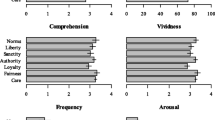Abstract
This paper discusses a central idea of our everyday life—human actions and the role of luck in the moral life. The aim of this paper is to formulate and discuss the problem of moral luck, thereby dealing with the question: ‘what is the status or role of luck in the moral life of an individual?’ Bernard Williams and Thomas Nagel highlight the juxtaposition of the two contradictory terms: ‘Luck’ and ‘Morality’ and used the term ‘moral luck’ which inculcates the view that the factor of luck or fortune can affect the moral worth of an individual. In this context, the paper is specifically concerned with the philosophical problem of moral luck which raises a conceptual tension between morality and responsibility by emphasizing that moral assessment, evaluation and justification of human actions are all subjected to luck. Further, in the light of this philosophical problem, the paper also attempts to postulate a possible moral framework with an aim to analyse and conceptually map the status of the juxtaposition of luck and morality.
Similar content being viewed by others
Notes
I wish to thank Professor Balaganapathi Devarakonda and Professor Bindu Puri for their continuous guidance and suggestions throughout my work. I am very grateful to them for reading and commenting on earlier drafts of this paper.
According to Webster, luck is defined as ‘good or bad fortune’, ‘circumstances brought by this’; and fortune is defined as ‘chance or luck in human affairs’, ‘person’s destiny’. The discussion on whether luck is synonym to fortune itself is a complex one as conceptually one can argue that luck and fortune are not completely similar, though they appear to be the same. However, in this paper I have used the term luck or fortune as having similar connotations in accordance with Webster.
Bernard Williams and Thomas Nagel first delivered their papers on ‘Moral Luck’ at a Symposium of the Aristotelian society, published in Proceedings of the Aristotelian Society, Supplementary Vol. L (1976). Thomas Nagel’s paper was a reply to that of Bernard Williams. Later, Williams published his paper with revisions in ‘Moral Luck: Philosophical Papers 1973-1980’ (1981) and Nagel published his paper with revisions in ‘Mortal Questions’ (1979). In this paper, I have referred to Williams’ and Nagel work as published in Statman (1993). Moral Luck. Albany: State University of New York Press.
Apart from his famous example of an artist Gauguin, Williams in ‘Moral Luck’ (1981) considered another example (‘an equally schematized account’) of Anna Karenina. Anna was going through a difficult phase in her relationship with Vronsky and ultimately ‘failed in the heart’. Williams point out that this is a matter of ‘Intrinsic Luck’, the locus of which lies within both Anna and Vronsky for they were unable to continue their relationship smoothly. He further points out that had there been an accident wherein Vronsky was killed due to some misfortune, then it would have been a matter of ‘Extrinsic Luck’ (Williams 1993a, pp. 41–42).
According to Nagel, ‘Moral Dilemmas’ are an unusual example of circumstantial moral luck (Nagel 1993, note. 9, p. 70).
Williams’ Intrinsic and Extrinsic Luck can be termed as Constitutive and Circumstantial Luck in Nagel’s terminology.
The kinds of luck that deal with the causes and effects of actions being performed have been addressed as ‘Causal Luck’ and ‘Resultant Luck’ by Statman (1993). Moral Luck (p. 11). Albany: State University of New York Press.
Nagel criticized Williams position of the ‘retrospective attitude’ of an agent in the notes of his paper ‘Moral Luck’ (Nagel 1993, note 3, p. 69).
Williams’ accepts that one of the possible implications of the association of luck and morality would be ‘calling our moral conceptions into question’. In this context, he accepts being sceptical about moral grounds and conceptions in the notes of his paper ‘Moral Luck’ (Williams 1993a, note 11, p. 55).
References
Athanassoulis, N. (2005). Morality, moral luck and responsibility: Fortune’s web (pp. 1–25). New York: Palgrave Macmillan.
Levi, D. S. (1993). What’s luck got to do with it? In D. Statman (Ed.), Moral luck (pp. 109–121). Albany: State University of New York Press.
Nagel, T. (1993). Moral Luck. In D. Statman (Ed.), Moral Luck (pp. 57–71). Albany: State University of New York Press.
Rescher, N. (1993). Moral Luck. In D. Statman (Ed.), Moral Luck (pp. 141–166). Albany: State University of New York Press.
Richards, N. (1993). Luck and desert. In D. Statman (Ed.), Moral Luck (pp. 167–180). Albany: State University of New York Press.
Statman, D. (1993). Moral Luck. Albany: State University of New York Press.
Walker, M. U. (1993). Moral Luck and the virtues of impure agency. In D. Statman (Ed.), Moral Luck (pp. 235–250). Albany: State University of New York Press.
Williams, B. (1993a). Moral Luck. In D. Statman (Ed.), Moral Luck (pp. 35–55). Albany: State University of New York Press.
Williams, B. (1993b). Postscript. In D. Statman (Ed.), Moral Luck (pp. 251–258). Albany: State University of New York Press.
Author information
Authors and Affiliations
Corresponding author
Rights and permissions
About this article
Cite this article
Bhatia, D. Moral Luck: A Philosophical Problem. J. Indian Counc. Philos. Res. 35, 571–584 (2018). https://doi.org/10.1007/s40961-018-0146-x
Received:
Revised:
Accepted:
Published:
Issue Date:
DOI: https://doi.org/10.1007/s40961-018-0146-x




